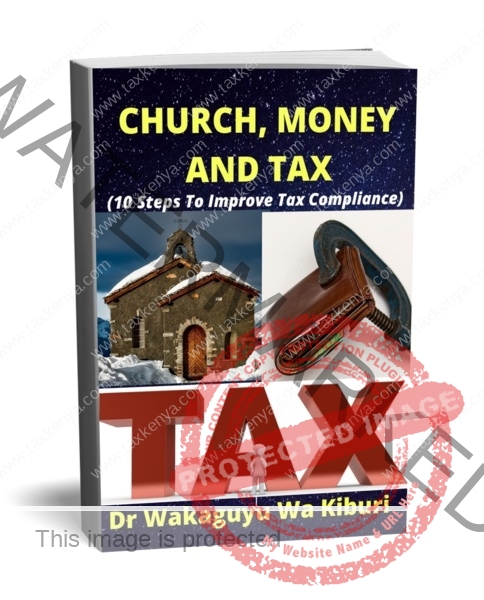Many people do not know the relationship between gambling, taxes, interest rate capping, and the economy. In this post, we will take you through the road from gambling to the near-crippling of the Kenyan economy. While traveling on this road, there are many things that you will find out.
a. Affiliate Disclosure: These are affiliate links from which we receive a commission at no cost. Read full Affiliate marketing disclosure HERE.
b. Tax Contents Disclaimer: The tax industry in Kenya is very dynamic. The tax contents in the posts are not professional advice. Read full disclosure HERE.
On this road from gambling to the crippling of the Kenyan economy, the significant things that you will find are:
- Interest rate capping
- Government domestic borrowing
- Lack of money in circulation
- Low tax revenue collection
- The weakened economy
We argue that there is a direct link between gambling activities in the country, low tax revenues, and the near crippling of the Kenyan economy. This crippling of the Kenyan economy has increased poverty levels and may facilitate the handover of the country to foreign loan owners.
Gambling in Kenya
Many days ago, while on official duties, we visited one taxpayer on Lunga Lunga Road. The taxpayer decided to give fatherly advice to my male colleagues. He told them that if they want to lead a good life without the risk of bankruptcy, they should avoid gambling, alcohol, and…
Over the years, I have lived to witness the truth of this older man’s wise words. These wise words apply not only to human beings but also to countries, Kenya included.
In this post, the word gambling will include all activities in that sector: gambling, betting, lotteries, gaming, etc.
It is expected to hear people complaining that Kenya is a gambling country or that Kenyans are simply gamblers. Every day and everywhere, Kenyans are bombarded with gambling promotions on internet advertisements, newspapers, public transport vehicles, etc. The gambling companies hold road trips, blaring their messages for all and sundry, enticing the public to start gambling and become rich.
Gambling is not a productive activity. Gamblers hand out their hard-earned money expecting to get more in return for doing nothing apart from that act of handing over their money. Gamblers forget the proverb that one bird in hand is better than a thousand birds in the bush.
Gamblers do not value their little money but expect to cherish the more money they hope to get after winning. In the book “Hekaya Za Abunuwasi,” Abunuwasi was given an enormous cooking pot and returned it with a small pot, not a big one. Gambler’s greed and laziness are what drive many of them. They want to turn around this concept.

Gamblers’ greed and laziness are the two aspects that gambling business owners exploit.
Gambling in Kenya is controlled under the Betting, Lotteries, and Gaming Act, Cap. 131. Gambling in Kenya is done officially both physically and online within the country, as well as internationally. There are also unofficial, unregulated gambling dens using physical machines, online betting sites using mobile phones, cyber cafes, or online betting shops.
A search on the internet shows that less than thirty (30) companies are engaged in the “gambling business” in the country. These companies operate daily, with the minimum betting amount being Ksh twenty (20) shillings.
How much money do they collect from the market?
There have been reports in the media of a gambling company collecting and removing from Kenya Kshs 500 billion. If this number is accurate, one company received Kshs 500 million from as many people who had taken it out of circulation. This company deposited the money in one bank, which was wired out of the country.
If one company can collect this money, how much more have the other companies removed from the market?
Less than thirty gambling companies have been collecting money from Kenyans and depositing it in a few banks. The government borrows this money for recurrent expenditures and the repayment of domestic external loans.
Many people give their money to less than 30 gambling companies, which deposit it into a few banks that loan most of the money to a single borrower, the government.
Unfortunately, gambling activities in Kenya have resulted in mopping up money from the economy. This situation may not have been expected, but this is what has happened.
Mopping up money from the economy is done when there is hyperinflation in a country. Kenya last experienced hyperinflation in the 1990s with the unregulated printing of the Kenya shillings. This was mainly done to stabilize the economy. Mopping up money in a period of stable economic growth has the opposite effect: it weakens the economy.
Mopping up money from the economy means that money is removed from circulation, which means there is no money to engage in economic activities. The net effect is the collapse of the economy.
Let us illustrate this. If X is a farmer and it rains heavily, X will have to drain water from the farm to be able to farm. Heavy rains are like hyperinflation in the economy. However, X will farm properly since X’s farm has regular moisture. Average moisture is like normal inflation. If X removes the normal moisture from the farm, the soil will dry, and X cannot engage in farming. X’s farm will eventually collapse. Removing the normal moisture from the normal soil is like mopping up currency from the economy during periods of normal inflation. You will dry up the economy, cripple it and finally collapse it.
The unfortunate scenario of mopping up currency using gambling activities on the market has twin effects on the economy. First, the Kenyan economy is denied money used in gambling activities. For example, when a person in the village gambles Kshs 200, this money is withdrawn from the economy and unavailable for economic activities.
If the person had not engaged in gambling activities, the two hundred shillings would have been available to purchase raw and manufactured foodstuffs, thus promoting the local economy. The person can hire a fellow villager to work for them for a few hours, creating employment. The person also pays part of the school fee bill and contributes to future economic growth in the village economy. There are many things that the two hundred shillings can be put into.
The two hundred shillings can be divided for all these activities. By the time the money is banked, it will have circulated in the village economy. This circulation will spur the village economy, and the multiplier effect is high. In the end, this money will contribute to tax revenues.
When the money is put into a few banks, the bank would instead invest the money in government papers since late Kenyan banks are averse to risk evolving into some of the largest investors in government papers. The banks have ceased being intermediaries for economic development in the country, where they collect money from people who have money but have no immediate projects and lend to those who have primary projects for economic growth.
Currently, banks in Kenya compete directly with the man on the street for investment opportunities the government offers. The banks would instead loan to the government rather than the local population because of the risk.
It is less risky to lend to the government.
The government borrows money to balance the budget and pay external loans. It has been informed that the highest budget utilization is towards the payment of salaries. Salaries are part of recurrent expenditures and thus do not develop the country.
The result of mopping up money through gambling is that no money is in circulation. This affects direct and indirect taxes and can potentially ground the economy. Even though the gambling industry has contributed a lot of taxes to the exchequer, these contributions are insignificant in light of the harm gambling has caused Kenya’s economy.
Interest Rate Capping
Interest rate capping was introduced in September 2016 to protect Kenyans from “greedy” banks, considered merchants of death, ready to squeeze their customers’ last pint of blood. It was hoped that with the interest rate cap, the banks would have a human face and extend their generosity to Kenyans.

However, interest rate capping has had the opposite effect.
Banks exist to increase their owner’s wealth; they are not charitable organizations. In determining how much wealth they will grow for their shareholders, banks consider how much money they will make and whether they will make the money (risk). Interest determines how much money the banks will make.
Interest rate capping ignored one fact: people were not taking loans because interest rates were low; they were taking loans because they needed the money and the money was accessible. Besides, the loans were not for consumption purposes but for investment projects. Most of the people taking the loans had their figures correct: they knew how much to borrow, how to pay the loans, and when to pay the loans.
After all, the loans were never free.
With reduced margins dictated by interest rate capping, banks were reluctant to loan money to the general population because they would not make the money they required. The general population also presented a higher credit risk.
Those were the two problems the banks were facing.
However, the bank problems were brief. The problems were solved when the central government became a direct participant in the domestic money market with its massive appetite for domestic loans. The government was (has been) in direct competition with the ordinary person, “mwananchi,” for domestic loans from the banks. The banks, realizing it is less risky to lend to the government than the people, prefer to lend to the government.
The banks do not outright refuse to loan the money to the people. The banks put in place stringent measures to access the loans and lengthy periods before the loans are approved. Effectively, this has resulted in a credit crunch or squeeze in the economy where the availability of loans to the average person has become almost impossible.
The lack of loans in the domestic market means that many businesses will find it difficult to survive. Businesses are unable to pay previous loans. This means that people are experiencing difficulties paying income taxes. Consumption taxes such as VAT and excise duty are equally affected.
Low Tax Revenues
Through its ability to mop up money from the economy, gambling has negatively affected it, resulting in low tax revenue collection. Interest rate capping combined with government domestic borrowing has denied the economy investment capital, almost grounding the economy and hence low or no taxes. The majority of the money the government borrows is not for economic development but rather for domestic and foreign loan repayment. Gambling and interest rate capping have denied the economy development money.
Economies develop when there is money circulating.
As money circulates in the economy, taxes such as VAT are generated, and business costs are reduced. More income is generated, resulting in higher tax revenues.
Gambling and interest rate capping have reduced the amount of money circulating in Kenya. The net effect is that in the financial year 2018–2019, the envisaged tax revenue collection targets will not be met. Of course, we know many other factors will contribute to this.
In the next post, we have proposed some measures that we, as Kenyans, should take to turn around our country’s economy from near-total collapse and the impending takeover by modern-day colonists.
Feel free to send us tax and investments in Kenya questions or topics at taxkenya@gmail.com that you wish to be covered on this website.
Thank you for reading the article.
Is this conversation helpful so far?
Dr. Wakaguyu Wa Kiburi.





